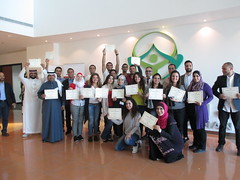On behalf of a client we wrote a research report on religious minorities in Iraq. Iraq is in significant disarray, affecting almost all residents in some way. Internal conflict and the crisis in Syria now mean millions are displaced internally and it is at the same time hosting increasing numbers of refugees from Syria. Where the situation has gone on for so long and other situations have taken attention, funding has become a serious challenge, e.g. the 2014 Strategic Response Plan was over 60% unfunded, probably due to focus and attention (and funds) going to currently higher profile emergencies such as Syria. This makes the response to the humanitarian situation extra challenging. Due to the scale of the humanitarian situation, the UN declared Iraq a ‘Level 3 Emergency’ (which represents the highest level of humanitarian crisis) in August 2014; only three other crises in the world are currently sharing the same emergency status: Syria, South Sudan and the Central African Republic (CAR).
Mainstream humanitarian players (such as the UN) do not generally present information by religion, tending to count overall anyone displaced or vulnerable (often due to a mix of factors). Community players (such as churches) do tend to highlight their own community’s displacement. This can make figures unreliable and/ or incendiary if not handled diplomatically (e.g. stoke further religious division). It is clear that (religious) minorities tend to be more vulnerable and are at greater risk, due to higher impacts on the viability of their communities. Where the majority communities are also suffering so much, an insensitively proposed and/ or executed response could do more harm to the vulnerable minorities and society as a whole. It is thus more different aspects of protection issues and we should be careful not to mix human rights with humanitarian aid.
The IOM Displacement Tracking Matrix (DTM) team verified a displaced population of 2,683,668 individuals as of 26 March 2015. This is an increase of over 49,100 people since the last report on 12 March. Of the many people displaced in recent months, the poor, particularly those without relatives and friends in safe havens, have been hit hardest. With few assets, and unless housed in camps, many displaced have no choice but to live in abandoned buildings and make-shift shelters, completely dependent on assistance to survive.
Civilians of all ethnic and religious backgrounds have been targeted by the violence sweeping across Iraq. This includes not only minority communities such as Yezidis, Christians and Turkoman in the north, but also Shiites and Sunnis. There are multiple groups forming the armed opposition, several employing brutal tactics against minorities and sects. Such persecution is likely to be a persistent feature of the ongoing conflict, incl. related to issues around article 140 of the Iraq Constitution. Protection concerns are equally faced by groups who are now in the minority in the areas of displacement, including those from Shia and Sunni communities.
The resilience of peoples and communities risk deteriorating further, not least as a result of a continued economic downturn, competition for jobs, as well as the pressures on existing basic service delivery institutions. This may also affect the level of generosity and patience shown by host communities in future, and may add to inter-communal tension. The lack of respect for International Humanitarian Law (IHL) and Human Rights Law (HRL) further emphasise the protection crisis but also has devastating consequences on the humanitarian response, not least in regards to humanitarian access. The focus on special minority groups by some stakeholders will become a key challenge in the short and longer term, creating additional protection concerns and keeping groups at risk for further violations. The way forward is to focus on principled humanitarian action based on the rights of all, not just the few.
According to the Worldbank, the total stabilisation cost for addressing the humanitarian crisis is estimated to range between US$833.6 million and US$1.5 billion across the baseline and high scenarios in 2015. Key opportunities to alleviate urgent and tangible humanitarian needs for the most vulnerable conflict-affected are:
- The Health Cluster is warning of potential gaps in service provision commencing in early April due to funding constraints. Essential services and supplies that are at risk include medicine and nutritional supplementation for frontline health centres, as well as vaccines. Mental health, psychosocial support, and reproductive health services for IDPs and refugees in Iraq also face jeopardy.
-
Provision of an effective water, sanitation and hygiene (WASH) response is severely constrained by shortages in funding. Many essential, ongoing operations face imminent closure. WASH activities are so far only funded to 28% (a shortfall of around US$115 million). Shared facilities which are dirty, broken and used by too many, leading to unhygienic situations and risk of diseases, which can then rapidly spread due to high temperatures and/ or affect school attendance
-
Educational attendance is very low and if not tackled will have long term implications for the country’s development and opportunities. 70 per cent of 754,000 boys and girls (age 6-17) displaced within Iraq are out of school, primarily due to the lack of funding. When affected people were directly asked about their priorities following an emergency, education was the top priority when children were surveyed and within the top 3 priorities amongst the studies consulting adults. The longer term economic and human capital costs of emergencies to education include estimates that reach the hundreds of millions – and even billions – of dollars
- Conflict mitigation programme for a more peaceful, sustainable coexistence for all in Iraq. The ‘do no harm’ principle is key here
If you would like us to support you with a proposal to respond to the humanitarian response, do get in touch on opermngt (@) osmanconsulting.co.uk (delete brackets and spaces). If you’d like us to do any humanitarian research for you, then do contact us on research (@) osmanconsulting.co.uk (delete brackets and spaces)






